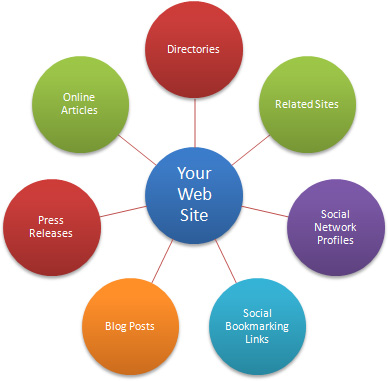Link Building - What Not To Do
 Link building is one of the most basic methods that web professionals use to grow their business online. It is the process of creating links to your website to try and achieve higher rankings on the search engine results page. Link building is an art. It's almost always the most challenging part of an SEO's job, but also the one most critical to success. Link building requires creativity, hustle, and often, a budget. It’s true that it’s a great way to build links on the internet, but it’s also tricky because there are a lot of ways to screw it up as well.
Link building is one of the most basic methods that web professionals use to grow their business online. It is the process of creating links to your website to try and achieve higher rankings on the search engine results page. Link building is an art. It's almost always the most challenging part of an SEO's job, but also the one most critical to success. Link building requires creativity, hustle, and often, a budget. It’s true that it’s a great way to build links on the internet, but it’s also tricky because there are a lot of ways to screw it up as well.
Getting links may be essential for website owners, but it’s important that they do it the right way. Check out the list below of what NOT to do to ensure that your website grows in the right way.
Irrelevant or Duplicate Content
Rule number one - make sure the websites you want to link to are actually worth linking to. What this means is that you need to create original and valuable content that is going to have some relevance to the people visiting the pages you want links from. And while you’re at it, refrain from producing duplicate content and writing guest blog posts for irrelevant sites. By doing this, your site will feel authoritative and be more attractive to high quality links.
Don’t Spam or Leave Irrelevant Comments
Don’t litter the web with spam. It’s okay to visit websites or forums that are relevant to your audience and spread the word about your website in hopes of building some links, but don’t post comments or replies with comments that have no context or value to the conversations at hand, all in hopes that attention will be paid to you. A much better idea is to take part in ongoing discussions to build your presence as an authority and only add references or links to your site when it will add value to other visitors. In most cases, these types of links have no value in determining rankings.
Be Social - Not Pushy
Social media marketing is here to stay and your website won’t get very far without it. It’s not enough to have just a Facebook or Twitter profile, you need to actively engage and be social with your fans/followers. Be friendly and open, but do not simply engage in self-promotion, or spam news feeds and walls with promotional links.
Don’t Buy Low Quality Links
If you do decide to purchase links, the ultimate goal is to find links that are high quality and relevant to your site. So don’t waste your time on buying links from low quality sources as it will always get you in trouble with search engines, which keeps a cautious eye on low quality link sites that engage in a bad practice called link farming. And don’t bother with trading links with low-quality sites just to have them, it’s not worth the damage it may cause your site.
Submitting to Directories Slowly
Directories, either paid or free, are great because they can seem like they're these big fields where links grow just for you, but don’t be tempted to just submit your site to a bunch of directories the week it goes live. Remember, good links come naturally and are built up over time. Plus, search engines can tell when you’ve just acquired a lot of links by going directory crazy, and that’s going to do more harm than good for your site in the immediate future.
Don’t Over-Link to Your Own Site
Chances are you’re producing articles and blog posts pretty regularly and it may feel natural to drop a link to your site a few times in the article. But be careful not to over link to your site in these articles. The whole goal of writing is to offer relevant and valuable information to your readers, not promote your website, so never drop more than one link to your site.
Link to Various Pages on Your Site
One of the biggest mistakes that people make when linking to their websites is to link only to their home pages. This is a bad idea because:
- Makes users have to dig to find certain information, so just link to the pages you want them to see
- Gives your site a bad deep link ratio and negatively affects how well your deeper “child” pages will rank on the search engines.
Change Up the Anchor Text
When you’re targeting a specific term that you want associated with your website, you may think it’s a good idea to use the same anchor text in your links over and over again. It’s not. In fact, this kind of narrow targeting will actually hurt you on the search engines. Instead, create a mix of brand and keywords and constantly vary your anchor texts links. This will help your site rank for more terms, obviously. Plus, it would be helpful to include your company or website name in a percentage of your links, as well. Our Live Imagination, Affinity Tracker, and Organic SEO Manager allow you to see the ratio of anchor text out on the internet.

